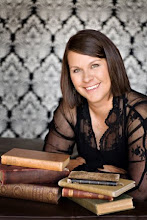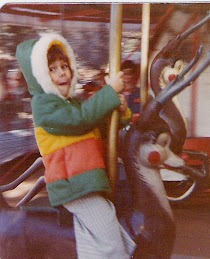Wordplay and Witticisms: This word comes from the French Prusse, meaning Prussia. It has come to mean "neat or stylish".I am thrilled to announce the winner of the autographed copy of
The Vampire Shrink by Lynda Hilburn is...
KimmyLE-mail me your snail mail address and your book will soon be winging its way to you! Congratulations and thanks to everyone who commented. A huge thank you to Lynda Hilburn for taking time out of her busy shedule to hang out with us!
Tomorrow we will be welcoming
Robin D. Owens, author of
Heart Mate and
Heart Thief (among many)!
Tuesday Top Ten:How is your manuscript reading coming along? Once you have read your entire manuscript you can jump into the editing and revising process with both feet. Here are ten things to watch for, in no particular order:
1.
Character inconsistencies: You want to have a firm grasp on your characters. They need to have a goal, a motivation and a conflict that is keeping them from their goal. All of your characters' actions come from these!
2.
Point of View: make sure it stays consistent. Avoid "head jumping" especially as a new writer. Your story will tighten up if you keep the number of minds the reader can "read" minimal.
3.
Dialogue tags ("he said", "she said"): You have to walk a thin line here. You need enough so the reader knows who is speaking but not so many to create distraction. Be wary of using too many unique tags like "exclaimed", "answered", "replied". Readers see but don't notice "said" yet it serves the purpose of identifying the speaker. Unique tags can be even more distracting so use them sparingly.
4.
The word "that": Take it out if you can. For example, "She said that Mary was coming," can be "She said Mary was coming." Too many "thats" can be distracting and slow down the pace of your writing.
5.
Adverbs: If you are using a lot of "ly" words, try to find a stronger verb that doesn't need an adverb. For example, "said quietly" could be "whispered".
6.
Grammar: You're an author, a word wizard. You need to have a strong, basic grasp of grammar. If you don't, get one - now, before you do anything else.
7.
Spelling: See above
8.
Style: Watch for run-on sentences, sentences that are confusing, overusing a specific word. For more information, check out
The Elements of Style by Strunk & White. This is a good reference book to have in your library.
9.
"Be" Verbs: These can slow down your story. Try to find alternatives.
10.
All of the above "rules" are made to be broken: That is the beauty (or horror) of writing and editing. There are no hard and fast rules, no one way that's "right". But they can be helpful, especially for writing newbies. Rules can guide you and give you focus. They can make the daunting task of editing and revising a little less overwhelming. Then as you become more proficient (and you will), you can bend and break the rules...
Try not to bite off more than you can chew. Editing is a slow process. If you start getting tired, your mind will wander and you will miss problems. Make a page goal or take it one chapter at a time! I try to edit 10 to 15 pages a day.
Good luck and keep writing! Have questions? Put them in the comments and I will do my best to address them!
W & W Answer: "Spruced up"...the Prussians were thought to be fashionably attired. For more fun check out Orijinz.





